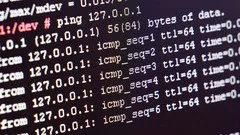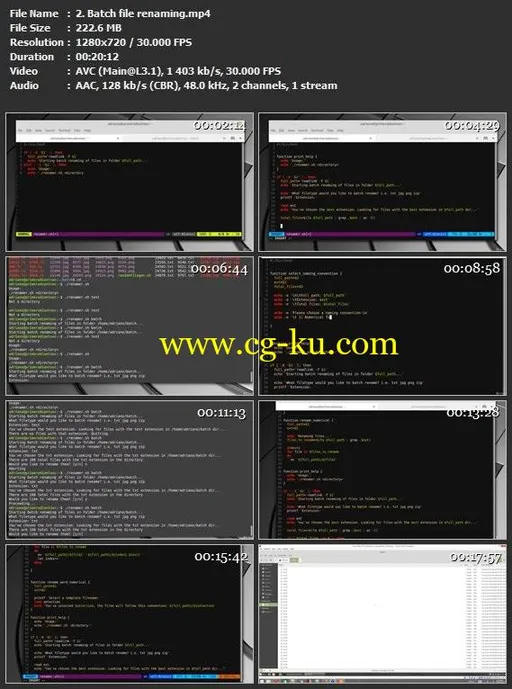Video: .MP4, 1280×720 | Audio: AAC, 44kHz, 2ch | Duration: 1h 58m 41sGenre: eLearning | Language: English | Size: 1,04 GBWe’ll start by setting up a very simple script, then we’ll move from there and cover how to deal with variables, functions, conditional statements, loops, arrays and how to manipulate text using sed, awk and regular expressions.
Once covered the fundamentals of the bash scripting language we’re going to write three scripts:A simple universal archive extractor: this script will allow us to extract any compressed archive (tar.
gz, 7z, rar, zip, bz, tbz2 and more) just by typing a command.
This script will contain no more than 30 lines of code.
A batch renaming tool: the script is going to take the folder to process as an argument, then will batch rename all the files in the folder with a given extension.
It will then rename all the files in the folder either with a sequential number or with a user supplied keyword, then a sequential number.
A tool to generate automatic backups based on a schedule: this script is going to generate a tar.
gz file by appending the current system date and time to the original folder name provided as an argument, we’ll then proceed to use cron jobs to schedule the script execution based on our preference.
By the end of the course you will be able to write scripts on your own to automate anything in Linux.
What you’ll learnYou will be able to write your own bash scripts to automate just about anything in LinuxAre there any course requirements or prerequisites?A PC with Linux installed either as the main OS or in a virtualized environment with VirtualBox or VMWareBasic knowledge of the Linux command line, a free course is available on the Prime Radiant Security YouTube channelWho this course is for:Anyone who’d like to learn how to learn bash scripting to automate all sorts of tasks in Linux

